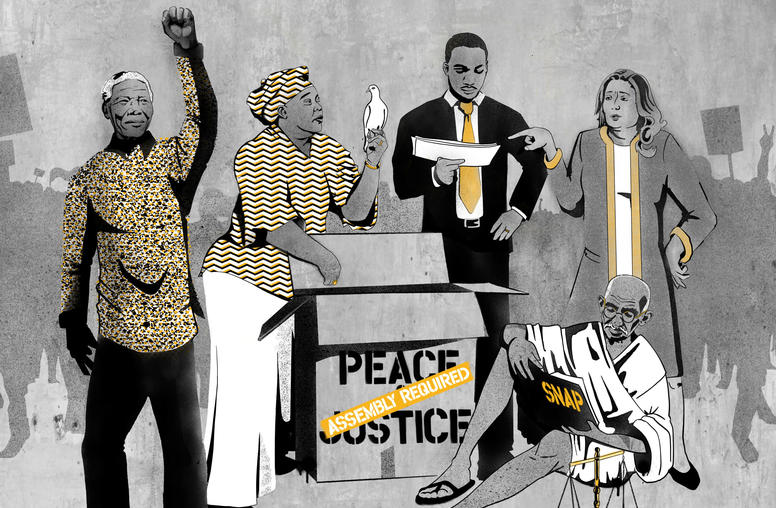SNAP: Synergizing Nonviolent Action and Peacebuilding (Arabic)
دليل عمل
يسعى هذا الدّليل إلى إقامة جسور تواصل بين العاملين في مجال بناء السّلام من جهة والناشطين في مجالات التّحرّك غير العنيف من جهة أخرى. ويستعرض أساليب العمل المتاحة في كلا المجالين بصورةٍ إستراتيجيّةٍ وفعّالةٍ للمساهمة في تحويل النزاع. ويُبيِّن الدّليل طريقة تحقيق التّضافر بين الحوار ومهارات التّحرّك المباشر والمقاربات من أجل خدمة العدالة والسّلام المستدامين. أعدّ هذا الدّليل ليوضع بتصرّف المدرّبين والمُيسِّرين وسائر الأشخاص المتعاملين مع المنظمات والناشطين والوسطاء والمفاوضين وبناة السّلام الذين يرغبون في معرفة المزيد بشأن طريقة الدّمج بين إستراتيجيّات التّحرّك غير العنيف وبناء السّلام في عملهم.
- الوحدة 1: التّضافر مفتاح النجاح
- الوحدة 2: ابدأ بدايةً استراتيجيةً للنجاح في تحويل النزاع
- الوحدة 3: الحوار كأداةٍ لتبديد النّزاع الشّخصيّ ودعم عمليّة بناء الائتلاف
- الوحدة 4: دور التّيسير في بلورة أهداف المجموعة وتحقيق التّوافق
- الوحدة 5: التّقييم لبناء الوعي وتعزيز الاستراتيجيّة
- الوحدة 6: وضع الأهداف الذكيّة
- الوحدة 7: ابتكار تكتيكات التّحرّك غير العنيف وترتيبها بالتّسلسل لبناء السّلطة
- الوحدة 8: إقامة التّسلسل بين التّحرّك غير العنيف وتكتيكات المفاوضات للتّوصّل إلى حلول مستدامة
- الوحدة 9: الرّبط بين الخيوط: الخطوط الزمنيّة للتّخطيط الاستراتيجيّ



